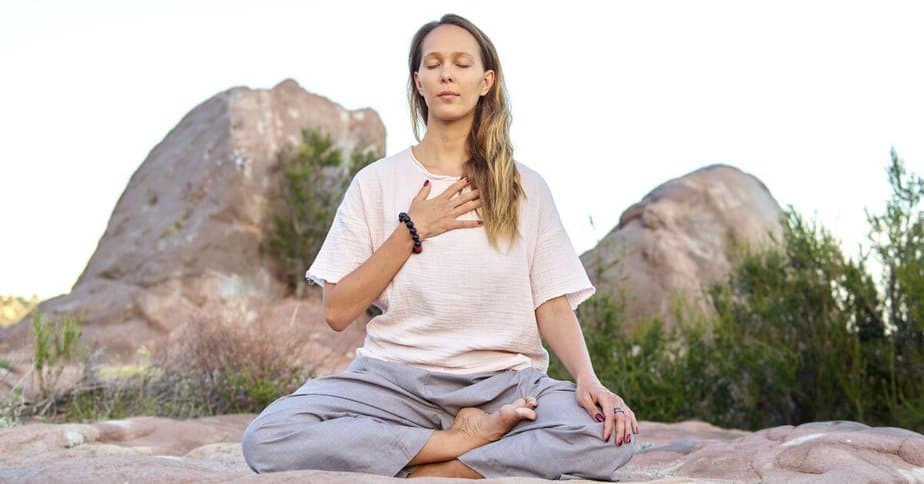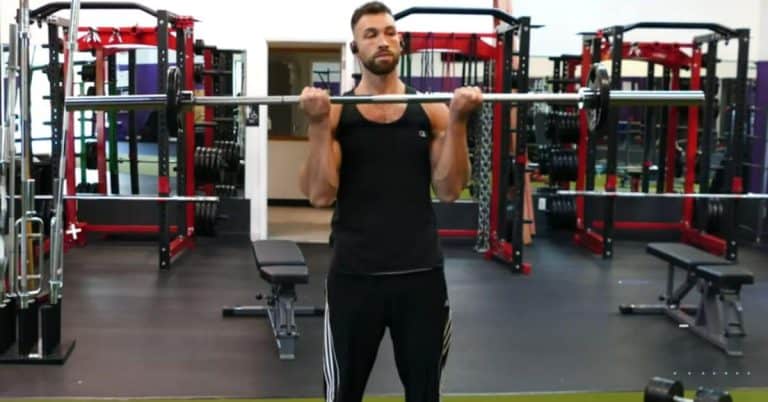Best Time to Meditate: Unlock the Power Within
Last Updated on November 11, 2023 by Justin Harris
The best time to meditate is in the morning or evening before bedtime. Meditation is most effective when practiced in a calm and quiet environment, allowing for deep relaxation and focus.
By choosing a consistent time to meditate each day, you can establish a routine and make it a regular part of your schedule. This will help to develop a sense of discipline and enhance the overall benefits of meditation.

Whether you choose to meditate in the morning to start your day with clarity and calm, or in the evening to unwind and alleviate stress, finding the best time that works for you is key to making meditation a valuable practice in your life.
The Benefits Of Regular Meditation
Regular meditation has numerous benefits that can contribute to overall well-being.
One of the main advantages of meditation is its ability to reduce stress and anxiety. By adopting a consistent meditation practice, individuals can learn to quiet their minds, relax their bodies, and let go of tension and worries.
Another benefit of meditation is that it helps in increasing focus and concentration. By training the mind to stay present and avoid distractions, regular meditators can improve their ability to stay focused on tasks and increase their productivity.
Meditation also enhances mental clarity and decision-making. By calming the mind and creating mental space, meditation allows individuals to think more clearly and make better decisions.
Furthermore, meditation promotes self-awareness and self-discovery. Through mindfulness practices, people can gain a better understanding of their thoughts, feelings, and behaviors, leading to personal growth and self-improvement.
In addition to these benefits, meditation is known for promoting emotional well-being and happiness. By cultivating a sense of peace and contentment within, individuals can experience greater emotional balance and a more positive outlook on life.
Finding The Ideal Time To Meditate
Understanding the body’s natural rhythms can help in determining the best time to meditate. Morning meditation is often recommended as it allows for a fresh start to the day.
The mind is usually calmer in the morning, making it easier to focus and set intentions for the day ahead. Additionally, morning meditation can boost energy levels and enhance productivity throughout the day.
On the other hand, evening meditation can be beneficial for winding down and relieving stress accumulated during the day. It provides an opportunity to relax, let go of any tension, and prepare the mind and body for a restful night’s sleep. Moreover, evening meditation can promote self-reflection and introspection, aiding in personal growth and self-awareness.
| Considerations for Morning Meditation: | Benefits of Meditating in the Morning: |
|---|---|
| Start the day with a clear mind | Boost energy and productivity |
| Take advantage of the calmness before the day begins | Set positive intentions for the day |
| Considerations for Evening Meditation: | Benefits of Meditating in the Evening: |
|---|---|
| Release stress and tension accumulated during the day | Promote relaxation and better sleep |
| Reflect and cultivate self-awareness | Prepare the mind and body for rest |
Factors To Consider When Choosing A Meditation Time
Personal preferences and lifestyle
The best time to meditate will vary from person to person, based on their personal preferences and daily routines. Some individuals may prefer to meditate early in the morning to start their day on a calm note, while others may find evenings more suitable for relaxation and reflection.
Work schedules and commitments
It is essential to consider work schedules and commitments when determining the ideal time for meditation. Those with a busy morning routine may find it more feasible to incorporate meditation during a lunch break or before bedtime.
Circadian rhythm and energy levels
Understanding one’s circadian rhythm and energy levels can influence the choice of meditation time. Some individuals may have higher energy levels in the mornings and may benefit from practicing meditation during this time when they feel more alert and focused.
Tailoring meditation time to individual needs
It is crucial to tailor meditation time to fit individual needs and preferences. Experimenting with different times of day can help identify when one feels the most relaxed, focused, and receptive to meditation.
Creating a consistent meditation routine
Consistency plays a vital role in reaping the long-term benefits of meditation. Once a suitable time is established, it is important to create a consistent meditation routine to cultivate a habit and make it a regular part of daily life.
Read Also,
- Elliptical for Short Person
- Best Treadmills Under $2000
- Best Exercise Bike Under £200
- 500 Lbs Treadmill
- Best Exercise Bike Under £300
- Folding Exercise Bike for Short Person
- Best Elliptical Under 1500
- Best Elliptical Under 1000
- Folding Treadmill Under $200
- Best Treadmills Under $1500
Tips For An Effective Meditation Practice
Creating a dedicated meditation space can greatly enhance your meditation practice. Find a quiet and peaceful area in your home, away from distractions, where you can sit comfortably and undisturbed. This will help you create a sacred space that promotes relaxation and tranquility.
Next, establish a comfortable posture. Sit on a cushion or a chair with your back straight, allowing your body to be relaxed yet alert. This will help you maintain focus and prevent any discomfort during your meditation.
Choosing the right meditation technique is crucial. There are numerous techniques available including mindfulness meditation, loving-kindness meditation, and transcendental meditation. Experiment with different techniques to find the one that resonates with you the most.
Guided meditation and silent meditation are two popular options. Guided meditation involves listening to a recording that leads you through the meditation practice. Silent meditation, on the other hand, requires you to focus on your breath or a specific object without any external guidance.
Incorporating mindfulness into your daily life is essential for a well-rounded meditation practice. Mindfulness is about being fully present in the moment, whether you are eating, walking, or simply talking to someone. Practice mindfulness in all aspects of your life to cultivate a sense of peace and clarity.
Conclusion
Finding the best time to meditate is a personal journey that varies for each individual. Experimenting with different times of the day and observing how your mind and body respond is key. Whether it’s morning, evening, or even during a lunch break, prioritizing this practice in your routine is essential for reaping its numerous benefits.
Remember, consistency is key in establishing a fulfilling meditation practice. So, start exploring and find the perfect meditation time that works for you.






